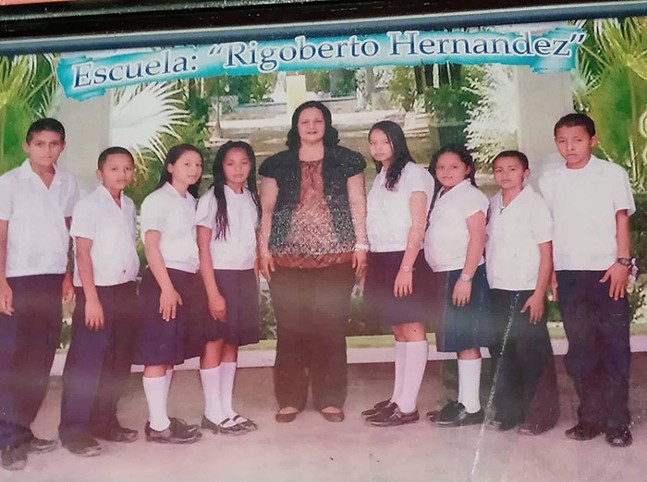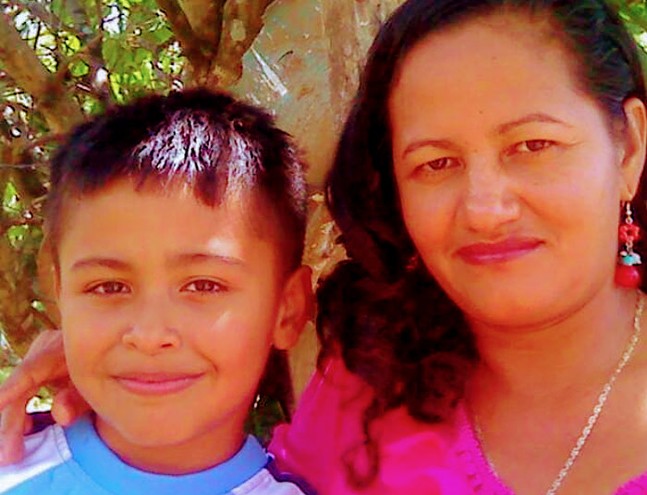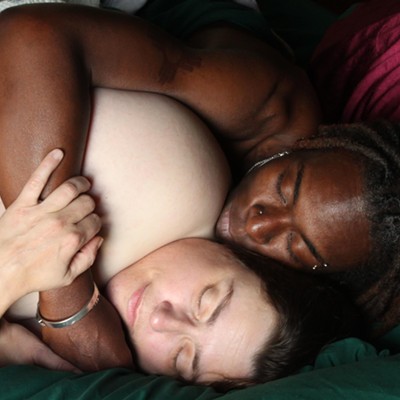When my mom first told me we were leaving for Honduras, I thought she was making a passing joke. But I realized she wasn’t kidding when we boarded our connecting flight in Miami to land in San Pedro Sula, Honduras.
Before then, my parents mentioned their home country to me on occasion, but I grew up only hearing stories of what their lives used to be.
In 2010, my sister, who lived in Honduras, became severely ill, and my mom decided it was time to return to her home country for the first time in over a decade. She also decided to bring me with her. I was nine years old.
My stay in Honduras wasn’t meant to go beyond a couple months, but three months slowly grew to three years in the Central American country.
As an American kid, I didn’t have much concept of the wider world, so when I got there, I immediately realized that my parents' home country wasn’t the same as mine.
The first thing I noticed was the wildly different prices displayed in another currency, Honduran Lempiras. The price of a plain bag of Lay chips was over 100 Lempiras, which seemed steep until I got used to the change.
As my mom and I spent more time in Honduras, I started noticing she would say “no'' to things I could easily access in the U.S., but at the time I didn’t realize that the country suffered from a long ongoing inflation issue. Things like buying new clothes, going to the movies, and eating out at restaurants were some of the many things my mom and I stopped doing due to the high prices of everything.
The year before I arrived in Honduras, the country also suffered a military coup, where the nation's army ousted the former president Manuel Zelaya and sent him into exile.
The effects of the coup were still visible when I arrived there, and it’s something the country has not fully recovered from since.
Once my mom realized I wasn’t going to be coming back to the U.S. in a while, she decided to enroll me in school.
Most schools in Honduras require you to wear a uniform — usually a white button-up and navy blue dress pants.
Attending school in Honduras required walking an hour to a two-classroom building with just two teachers. The teachers split the hundred-and-some students into grades, with each taking a mix of older and younger students.
On several occasions during my time in Honduras, the teachers closed down our school while they attended protests in the bigger cities. Most were striking in hope of getting better working conditions and better pay.
Lunch at the school was prepared by the families of students, which most of the time consisted of rice and beans or other groceries provided by the Honduran government. Families came in based on a monthly schedule and prepared food with whatever the Honduran Ministry of Education had delivered to the school.
The roads on my way back from school were unpaved, and, during the winter, which brought on heavy rains, they would get horribly muddy.
There were many times in which I didn’t make it to class because a river overflowed on my way to school.
Electricity was also not available for the school and the entire area we lived in. Most families that could afford it set up solar panels on their homes to produce electricity when they needed it.
This also meant a lot of cold showers in my time there, but that wasn’t always bad during the hot burning summers.
Politics in Honduras
I was lucky enough to live through a major general election in Honduras, but I also realized how different it was compared to American politics.
Elections in Honduras are similar to the U.S. in that they both begin with primaries and then move on to a general election.
During the general elections, most people are focused on the presidential race in Honduras and despite being the most “powerful” branch in government, most legislative races are largely ignored.
Usually five parties are represented on the ballot by presidential candidates, which makes it really confusing to people outside Honduras. In the past two decades, the most prominent parties have been the Liberal party, National party, and the newer Liberty and Refoundation party.
"In a country where environmental activists and journalists get often assassinated for speaking the truth, I believe I owe it to them to exercise my rights in my home country."
tweet this
While I was in Honduras, the two candidates leading in the polls were Juan Orlando from the National party and Xiomara Castro from the Liberty and Refoundation party.
Orlando went to win the election in which a lot of people said there was fraudulent doing on behalf of the National party. However, Xiomara Castro is the current sitting president and the country's first female president. Orlando was eventually extradited to the U.S. due to his dealing with narcotics while in office.
While I was in Honduras, my mom got me heavily involved in politics. At the time, she supported Castro's run for president, but that year, the mayor race also took center stage in our community. I went to rallies and even followed her into the ballot box when the general election came around.
I'm still just as interested in politics, but Honduras is where it really started. In a country where environmental activists and journalists get often assassinated for speaking the truth, I believe I owe it to them to exercise my rights in my home country. To vote in every election, to be an activist when I can be, and just be involved wherever I can be.

What It Means to Me Now
Although my years in Honduras weren’t always easy, I don’t think I would ever trade the experience.
Honduras is known for its corrupt government and high levels of crime, but despite the hardships, the people are proud and always strive to do their best.
The U.S. is not perfect at all and we have much work to do, especially in recent days, but living in a country like Honduras makes you appreciate what you already have.
When I see people taking on that treacherous journey from Honduras to the U.S. border, I understand why they’re doing it. These people want to make a better life for themselves and the families they left behind, nothing else.
Trying to alienate these families who are coming from these countries is not the answer and never will be. They are just trying to improve their quality of life and some of them might even be running for their lives.
As an American and also a Honduran, I pride myself on my ancestry and what America means to me, but there are certain values that transcend beyond that, despite where I come from.
As a young aspiring journalist, I hope to help my country with stories I choose to cover and aid all the newcomers that choose to pursue the American dream.
Ladimir Garcia is a student at West Virginia University and a Pittsburgh City Paper summer intern, made possible through the support of the Pittsburgh Media Partnership. Follow him on Twitter @TheLadimirGarcia.















